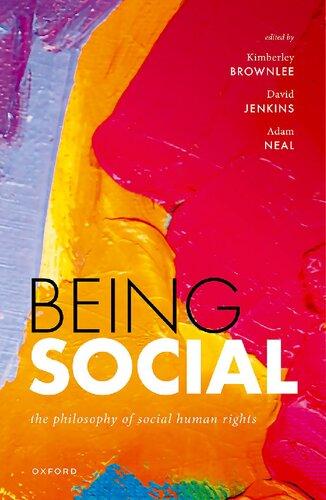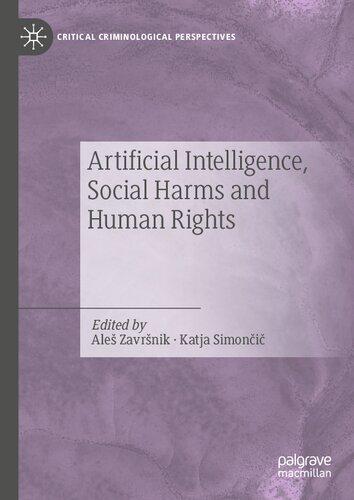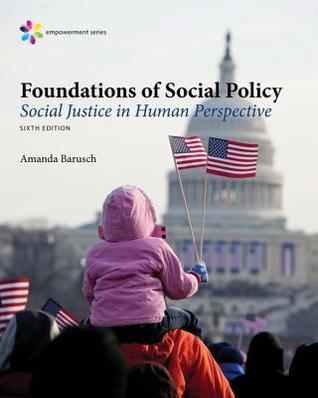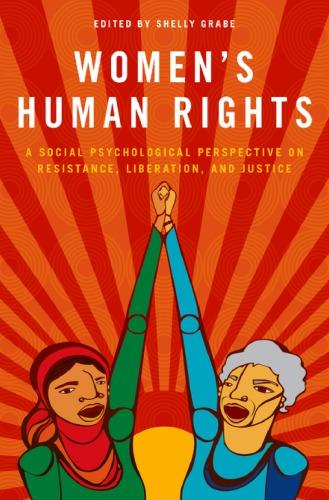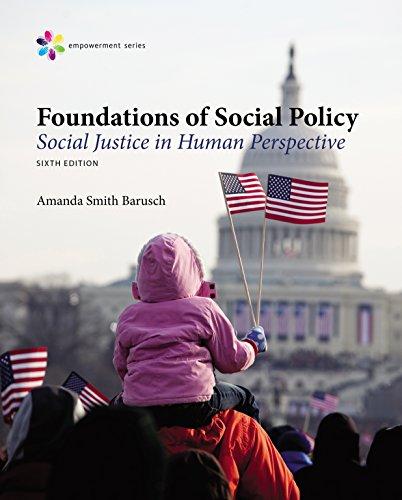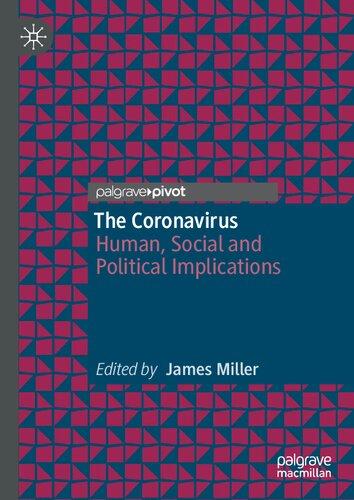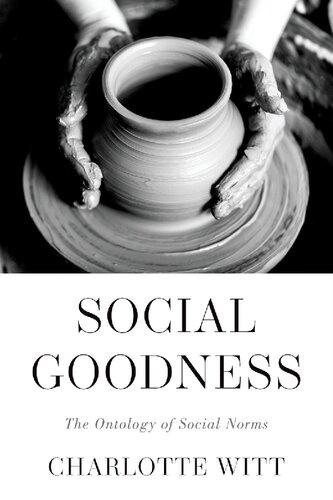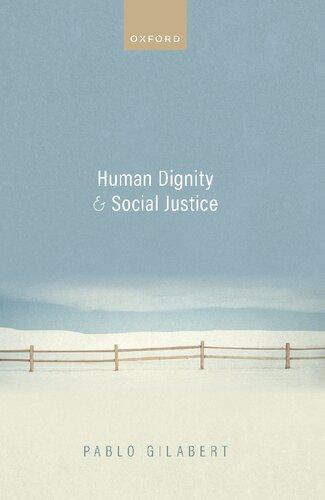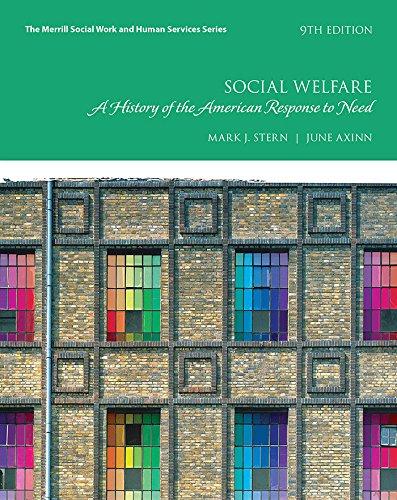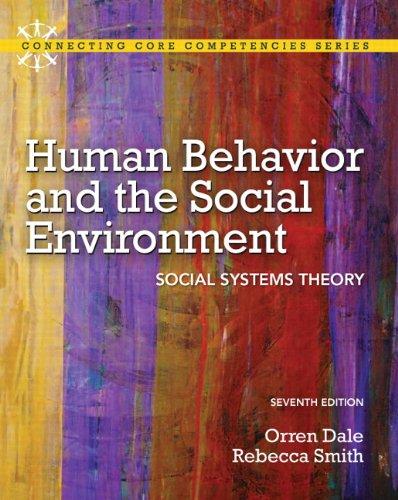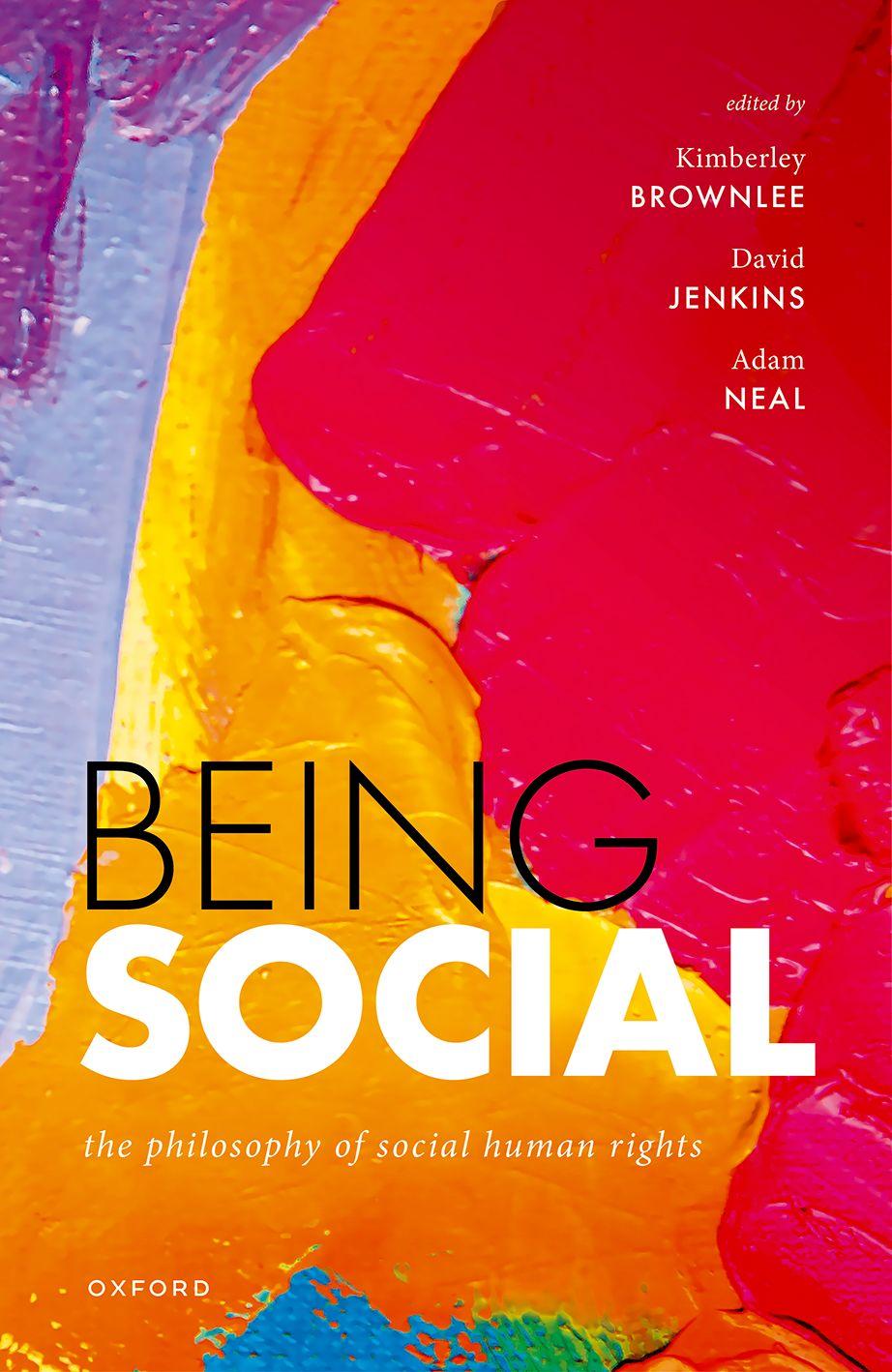Introduction
KimberleyBrownlee,DavidJenkins,andAdamNeal
Certainrightsareessentialtoaminimallydecenthumanlifebecause,whenthese rightsgounmet,humanlifebecomesunbearable.Thispioneeringcollectionof originalessaysexploresthesocialdimensionsofthatminimum.Theessays investigatethenatureandforceofourinterestsindecenthumancontact, acknowledgement,socialinclusion,connection,relationship,intimacy,and sharedwaysoflivingaswellasourcompetinginterestsinsolitudeandassociative freedom.Thecategoryofhumanrightswhichencompassesthesevariousinterpersonalandsocialinterestsiscalled socialrights. Theessayssubjectboth enumeratedsocialhumanrightsandproposedsocialhumanrightstophilosophicalscrutinyandprobetheconceptual,normative,andpracticalimplicationsof takingsocialhumanrightsseriously.
Thehumanrightsthatprotectourinterestsinshelter,food,health,education, culture,andcommunityhavelongbeenseenasthepoorcousinsorevenfalse relationsofthehumanrightsthatprotectourinterestsinphysicalsafety,due process,politicalparticipation,andfreedomofmovement,speech,andbelief. Indeed,eventhoughmanyofoursocio-economicrightsareenumeratedinkey internationalagreementssuchasthe UniversalDeclarationofHumanRights (UDHR) , the InternationalCovenantonCivilandPoliticalRights (ICCPR),and the InternationalCovenantonEconomic,Social,andCultural Rights(ICESCR), somethinkersmaintainthattheserightsareofadifferent ‘logicalcategory’ from theparadigmsofcivilandpoliticalrights,andtheattempttoincorporatesocioeconomicinterestswithintherespectableconceptof humanrights hasleftit muddied,obscured,anddebilitated(Cranston1967).Somethinkersholdthat accesstoeducation,food,healthservices,work,andcultureisbestthoughtofasa desirablegoal,oraliberalaspiration,ratherthanasthingstowhichwecanhave humanrights(Williams2005:64;Beetham1995;Geuss2001:138ff).Thereasons givenforquestioningthecredibilityofsuchrightsincludethattheyaresimply unclaimableor,ifclaimable,areoverlydemanding(O’Neill2005;Collins2016; Tomalty2014);thattheyareaboutthewrongkindsofthingsbecausehuman rightsaremeanttoprotectusfromoppressionandnottosecureforusbasic materialandsocialgoods;andthatevenifsocio-economicrightsareaboutthe KimberleyBrownlee,DavidJenkins,andAdamNeal, Introduction In: BeingSocial:ThePhilosophyofSocialHumanRights. Editedby:KimberleyBrownlee,DavidJenkins,andAdamNeal,OxfordUniversityPress.©KimberleyBrownlee, DavidJenkins,andAdamNeal2022.DOI:10.1093/oso/9780198871194.003.0001
correctkindsofthings,manyofthemsecurefarmorethanthebrutemoral minimumthatistheproperpurviewofhumanrights(Ignatieff2001;Cohen2004).
In1977,KarelVašákbrandedsocio-economicrightsas ‘secondgeneration’ rights,averystubbornandunfortunatemislabellingthatbothmisrepresentstheir longhistory whichincludestheir figuringinsomeversionsoftheFrench DeclarationoftheRightsofMan (Walton2019) andimpliesthattheyare lexicallyinferiortoso-called ‘firstgeneration’ civilandpoliticalrights.¹That debatablerankingisreflectedinthedifferentlevelsofurgencyexpressedinthe twoInternationalCovenants.TheICCPR theCovenantthatenumeratescivil andpoliticalrights commitsstatepartiestoademandingstandard,specifically thattheyrespectandensuretoallpersonssubjecttotheirjurisdictiontherights recognizedinthatCovenant;statescommittoadoptingthelawsandother measuresnecessary togiveeffect tocivilandpoliticalrights(Articles2.1and2.2). Bycontrast,theICESCR theCovenantthatenumerateseconomic,social,and culturalrights commitsstatepartiestoamodest,progressive-realizationstandard,specificallythatthey ‘takesteps,individuallyandthroughinternational assistanceandco-operation ...tothe maximumof[their]availableresources, withaviewtoachievingprogressivelythefullrealizationoftherightsrecognized inthepresentCovenant’ (Article2.1).WhereastheICCPRinsistsonimplementationhereandnow,theICESCRexpressesnosuchinsistence.
Significantinroadshavebeenmadeoverthepast30yearstodefendthe credentialsofoureconomic-welfareormaterialrights(Nickel2005;Pogge2008; Poggeetal.2007;Sen1987,1992,1999).Comparativelyfewhumanrightsscholars stillquestioneithertherighttobefreefrompovertyortherightstoeducationand health(narrowlyconstrued);andmosthumanrightsscholarsandinstitutions acknowledgethetruthofHenryShue’spowerfulobservationthat all humanrights makebothnegativeandpositivedemandsofduty-bearerswhichcanrequire significantresources(2020:ch.2).Inotherwords,wecannotdividehumanrights neatlyintoso-called libertyrights and welfarerights:allhumanrightshavea welfareelementthatrequirespositiveactionfromduty-bearers.And,manysocalled welfarerights,suchaseducationandhealth,arethefoundationsupon whichlibertyismeaningfullyexercised.
Shue’sseminalcontributionstohumanrightsdebateshaveshownjusthow vitalspecificrightssuchassubsistenceandsecurityaretotherealizationoflesscontestedrightssuchasdueprocess,politicalparticipation,andfreethought (Shue2020).Withoutadequatenourishingfood,potablewater,physicalsecurity, anddecentshelter,wewillstruggle,ifnotfail,toexerciseanyrightsrequiringthe exerciseofclearthoughtgiventhementalandphysicaldeteriorationandriskof
¹The ‘generational’ typologyofhumanrightswasintroducedbyKarelVašákin1977followinga statementbythethenDirectorGeneralofUNESCO,Amadou-MahtarM’Bow,thatitwasnecessaryto formulatethe ‘thirdgeneration’ ofhumanrights(i.e.rightsofsolidarity).
earlydeaththatourdeprivedsituationwillproduce.Toputitbluntly,dueprocess, freespeech,andpoliticalparticipationareoflittleusetouswhenweareonthe brinkofstarvation.²Inviewofthefoundationalrolethatrightstosecurityand subsistenceplayinrealizingotherrights,Shuedescribestheserightsas basicrights
Theargumentativeinroadsthathumanrightstheoristshavemadeonbehalfof economic-welfareormaterialrights,whetherornottheoristsregardthemas basic inShue’ssense,havenotyetbeensystematicallymadeonbehalfofour social humanrights.Thiscollectiontakesa firststeptowardsremedyingthatneglect. Shue,forhisownpart,hadnotexploredpriortothepublicationofthiscollection thevitalrolethatoursocialconnectionsplay,particularlyinchildhood,in securingourotherhumanrights.³Inhischapterhere(Chapter1),Shuemakesa notablecontributiontohumanrightsdebatesbyexpandinghisconceptionof basicrights toincludeourinterestsinsocialinclusion.HeutilizesElizabeth Ashford’smethodofidentifyingabasicright,i.e.wouldapersonforgoany otherrighttosecuretherightinquestion(Ashford2015),⁴ andhedrawson empiricalliteraturetoshowthatopportunitiesforsocialcontact,inclusion,and enculturationarevitalforthedevelopmentandmaintenanceofourcognitive capacities.Indeed,withoutthedevelopmentofsuchcapacitiesinchildhood,the veryconceptof personhood isthreatened.Forthisreason,Shuesaysthattheright tohaveadequatesocialopportunitiesduringchildhoodis ‘morebasicthanbasic’ (Chapter1).Hesubmitsthatanyguardianactingonbehalfofsomeonethreatened withthelossofsuchopportunitieswouldsurelysacri ficeanynumberofciviland politicalrightstoavoidit.Thatsaid,developmentisnotmoreimportant thanmaintenance.Eachisasfundamentalaninterestastherecanbe.Together,
²ThereareotherrightswhichareimportanttotheexerciseofmostrightsbutwhichShuedoesnot classifyasbasic,includingprimaryeducation.Withoutprimaryeducation,weareunlikelytodevelop theskillswhichwillenableusto ‘participateeffectivelyinafreesociety’ (ICESCR,Article13.1). Indeed,withoutadequateeducation,weareunlikelyeventoknoweitherwhatourrightsareorhowto claimthem.
³Inhisseminalwork, BasicRights,Shuedoesobservethat ‘Theinfantandtheageddonotneedto beassaultedinordertobedeprivedofhealth,life,orthecapacitytoenjoyactiverights.Theclassic liberal’smainprescriptionforthegoodlife donotinterferewiththyneighbor istheonlypoison theyneed.Tobehelplesstheyneedonlytobeleftalone’ (2020:19).However,whathehasinmindhere istheinstrumentalvalueofsocialconnectionstoensurechildren’sandolderpeople’saccesstosecurity andsubsistence,nottheirneedsforsocialconnectioninitsownrightindependentofitsinstrumental value.SeeS.MatthewLiao’schapterinthiscollectionforadiscussionofthesocialneedsofolder people.
⁴ Ashfordwritesthat ‘Thecorethreatthatdestitutionposestotheenjoymentofotherrightsis groundedintheseverityofthethreattopersons’ basicinterestsandmostimportantendsposedby inadequatesubsistence.Theseverityofthisthreathastwocentralimplications.First,inadequate subsistenceisunsustainable.Second,itisliabletobeevenworsethantheoptionofforgoingany otherright.Itfollowsthatwheneverforgoinganotherrightistheonlyavailableopportunityfor obtainingadequatesubsistence,theright-holderisliabletobedriventoforgothatright,because continuinginadequatesubsistenceisliabletobethemostunsustainableoptionofall ...[T]hethreatto persons ’ basicinterestsandcoreendsposedbyinadequatesubsistenceissoseverethatitisliableto outweigheventheharmposedbyforgoingnegativehumanrights.’ (2015:526)
ourdevelopmentandmaintenanceinterestsinsocialinclusioncomprisea double-barrelled basicright
Thegeneraltheoreticalneglectofsocialhumanrightstodateismirroredin humanrightspractice.Itisnoteworthy,forinstance,thatthe2015UNSustainable DevelopmentGoalsdonotincludeagoalspecificallyrelatedtoourinterpersonal, socialinterests,andnoneofthe17Goalshavetargetsexplicitlyrelatedtosocial interests,thoughvariousindicatorsofprogressgesturetowardsocialintegration andrelatedvalues.⁵ MuchattentionispaidwithintheGoalstoourbasicmaterial interests,whichatteststothegrowingawarenessoftheimportanceofthese interests,butalsoconfirmsthatoursocialrightshavebeenthepoorestofthe poorcousins.
Therelativeneglectofsocialrightswithinthe2015SustainableDevelopment Goalsismoresurprisingthanthesideliningoftheserightswithinthehuman rightstraditionthatgrewduringthesecondhalfofthetwentiethcentury.Thisis because,overthepastfewdecades,withsocialpsychologyandsocialneuroscience takingthelead,wehavebecomemoreawareofboththefundamentalimportance ofoursocialinterests(CacioppoandPatrick2008;Williams2009)andtheextent towhichoursocial,political,andmaterialinterestsareintertwined.Apersonwith insufficientmaterialandtemporalresourcescannotbehospitabletoothers, cannotbeahands-oncaregiver,andcannotmeettheirownneedsortheir dependants’ needsforsocialcontactandcommunity.Thishasramificationsnot onlyfortheirsocialinterests,butalsofortheirmaterialandpoliticalinterests:a personwhomustdedicatemostoftheirtimetoworkingandcommuting,orwho lacksthemoneytojoininsocialorpoliticalactivities,willbemarginalizedwithin theircommunityandmorevulnerabletocompoundingandcorrosiveformsof disadvantageandinjustice(Cordelli2015;Jenkins2020;Rose2016:ch.5;de-Shalit andWolff2007).Lackingadequatematerialresourcescanalsobeasourceofshame forpeople,especiallywhenthispreventsthemfromclothingandpresentingthemselvesinawaythatisdeemedtobesociallyacceptablebysociety.Thiskindofshame canleadthosewhosufferfromittoisolatethemselves(Sen2000;OPHI2021; SamuelCentreforSocialConnectedness2015),whichfurtherharmstheirsocial, material,andpoliticalinterests.Asthisindicates,socialrightsprotectusnotonly fromwaysthatwecanbeharmedassocialbeings,butalsofromotherformsof disadvantageandharm.
Socialityandcoresocialinterestshavereceivedattentionwithinrelatedconceptualframeworkssuchasthecapabilityapproach,advancedmostfamouslyby AmartyaSenandMarthaNussbaum,whichoffersalessindividualistic,but nonethelesshuman-rights-friendlyvehiclewithwhichtodefendcoresocialinterests,includingourneedsforsharedwaysoflifeandsharedethicaloutlooks,
⁵ Thetwogoalsthatcomeclosesttoidentifyingsocialneedsare ‘GoodHealthandWellbeing’ and ‘SustainableCitiesandCommunities’,buttheirtargetsdonothighlightsocialneeds.
emphasizingasitdoesthevitalimportanceofbothindividualsandgroupshaving meaningfulfreedomsandopportunitiestorealizecorefunctionings,suchasthose relatedtosociality.⁶ Nussbaumidentifiestencentralcapabilitieswhichalldemocraciesshouldsupport.Twoofthesecapabilitiesareexplicitlysocial;namely, affiliation and emotions,andseveralothersonherlistareimplicitlysocial, including senses,imaginationandthought; otherspecies; play;and controlover one ’senvironment (Nussbaum2011:33–4).The affiliation capabilityfocuseson beingabletolivewithandtowardothers,recognizeandshowconcernforothers, engageindifferentformsofsocialinteraction,andimagineanother ’ssituation. Protectingourcapabilityforaffiliationmeansenablingustoengageinvarious formsofsocialinteraction,acrucialpartofbeinghuman.Italsomeansprotecting institutionsthatconstituteandnourishimportantformsofaffiliationsuchasthe family(butnotonlythefamily)andprotectingfreedomofassemblyandfreedom ofspeech(2011:34).The emotions capabilityfocusesonbeingabletohave attachmentstopeopleandthingsbeyondourselves,toloveandbegratefulto thosewholoveandcareforus,togrievewhenweareseparatedorwhenwelose thosewelove.Thiscapabilityalsoincludesnothavingouremotionaldevelopment blightedbyfearandanxiety.Ingeneralthen, ‘[s]upportingthiscapabilitymeans supportingformsofhumanassociationthatcanbeshowntobecrucialin[the] development[oftheseemotions]’ (2011:34).⁷
Allthatsaid,notallsocialhumanrightsareequallymarginalizedwithinhuman rightstheoryandpractice.Thestandoutexceptionsaretherightsthatprotect marriageandfamilylife,therightsthatprotectreligiouspractice,andtherights thatprotectfreedomofassociation.Thesesocialrightsenjoyamuch firmer theoreticalandlegalpositionthandoothersocialrights.Theircomparative securityisdueinnosmallparttothefacttheyhavebeenenumeratedin internationalagreementsofficiallypertainingtocivilandpoliticalrightssuchas theICCPR.Also,inthecaseoffreedomofassociation,ourprotectedinterests havetraditionallybeenunderstoodin political termsaspreservingtradeunion
⁶ Thecapabilityapproachisnotacompetitortohumanrightsnorms.AmartyaSenstatesthat: ‘The twoconcepts humanrightsandcapabilities gowellwitheachother,solongaswedonottryto subsumeeitherconceptentirelywithintheterritoryoftheother.Therearemanyhumanrightsthatcan beseenasrightstoparticularcapabilities.However,humanrightstoimportantprocessfreedoms cannotbeadequatelyanalysedwithinthecapabilityframework.’ Sen,Amartya(2005:151), ‘Human RightsandCapabilities’ in JournalofHumanDevelopment,6:2,July.
⁷ JonathanWolffandAvnerde-Shalithavehighlightedadditionalfunctioningsrelatedtosociability including:doinggoodforothers,beingabletofollowthenormsofetiquette,beingabletocarefor othersaspartofexpressingourhumanity,andbeingabletoshowgratitude(2007:46–7).Theseideas seemtobeimplicitinNussbaum’slistofcapabilities,butWolffandde-Shalitexplicitlyshiftthefocus awayfrom receiving resourcesandtowardsthevalueinbeingabletogive.Thiscaninvolvethe capabilityofgivingtocharityorofhelpingsomeoneinneed.Itcanalsoinvolvecaringforothers,an importantaspectoflivingahumanlife.Thismeansbeinganactiveparticipantinasocialcommunity. Weareinterdependent,socialbeingswhodependoneachothersociallyandforsurvival.Stemming fromthisneedtobelongwemustseeandtakeanactivepartinthisinterdependence.Doinggoodfor othersandcaringforothersthenisimportantforourownwellbeing.
rights,⁸ andalsohavebeenviewedlargelythroughanegative-rightslenseven thoughthey,likeotherrights,mustmakepositivedemandsonduty-bearersto ensuretheyaremeaningfullyrespected,protected,andfulfilled.Freedomof associationprotectsourrightstoassociatewitheachotherandtoformvoluntary groupstogether,whichservesourinterpersonalneeds.But,ifviewedthrougha purelynegative-rightslens,thisfreedomdoesnotactuallygiveusarightto associate:itmerelygivesusarightnottobepreventedfromassociatingwith others whowishtoassociatewithus.Itdoesnothingtoprotectanabandonedchild oranexiledperson,oranimmigrantwithwhomnobodywishestoassociate,oran olderpersonwhosemobilityissuespreventhimfromattendinghislocalsocial club.Thenegativerightagainst(state)interferencealsodoesnotprovidethelegal, political,andsocialinfrastructurenecessary, first,toensurethatthird-parties honourourrightstoassociatefreelyand,second,togiveusmeaningfulwaysto routinelymeetproto-associatessothatwecanformassociationsovertime. Additionally,afreedom-from-interferenceapproachtoassociativerightsignores themassiveinvestmentthatparentsandguardiansmustmakeduringaperson’ s childhood willinglyornot inorderforhertoassertherfreedomofassociation laterinlife(Brownlee2020:chs5–6).
Astheexamplesoffamilyrights,religiouspractice,andfreedomofassociation show,itisconceptuallyincorrectandanalyticallyunhelpfultobundleallsocial humanrightsunderthe ‘socio-economic’ heading,especiallysincethatheadingis weigheddownbythestickyassumptionthatsuchrightsdonotmeritthestrongest legalandpoliticalprotection.Inreality,manysocialrightsseemtostraddle,ifnot dissolve,thecivil-political/socio-economicdivide,andalso,asnotedabove,they pushagainstthecontrastbetweenso-called libertyrights and welfarerights (Tasioulas2007;Shue2020:ch.2and166–8;cf.O’Neill2005).Amorefruitful theoreticalapproach,therefore,mighteschewsharpconceptual,normative,and practicaldivisionsbetweendifferenthumanrightsinordertohighlightthose rightsandperspectivesthathavebeenneglectedinhumanrightsdebates.
Ofcourse,collapsingsharpconceptualandnormativedivisionswillnotsolve alltheoreticalproblems,andmaycreatesomenewones.First,withoutsomekind ofrankingofhuman-rightspriorities,societieswillstruggletodetermine,andwill disagreeabout,howtoallocatetheirresources.Acivil-politicallexicalranking couldbereplacedwithabasic-rightslexicalrankingasaguidetosocieties,butthat wouldstillrequiresomereasonablysharpconceptualandnormativedivisions.
Second,ifourinterpersonalandsocialneedsarelumpedintoageneralcategory withotherhumanrights,certainimportantfeaturesofoursocialitymight beoverlooked,includingthefactthat,bynature,socialresourcessuchas face-to-facecontact,physicaltouch,companionship,care,culture-making,and
⁸ SeeScheinin,M.(1999), ‘Article20’ inG.AlfreossonandA.Eide(eds), TheUniversalDeclaration ofHumanRights:ACommonStandardofAchievement (MartinusNijhoff).
community-buildingnecessarilyrest within us.Suchresourcesarenecessarily ownedorpossessedbythepeopleandgroupswhoofferthem.Inthatrespect, socialresourcesaredistinctfrom andpotentiallymuchmoreproblematic than bothmaterialresourcessuchasfood,land,andwater,whichcanbe unowned,andinstitutionalresourcessuchaslawsandpolicies,whichare detachedmechanismsthatcanprotectusfromoppression.Evenso,many human-rights-securinginstitutionswhichwedonottypicallythinkaboutin interpersonaltermsareinfactdeeplysocial.Bothawell-functioningpolice forcewhichhelpstosecureourrightstolifeandphysicalsecurity,andawellfunctioninglegalsystemofjudges,juries,prosecutors,anddefencelawyerswhich helpstosecureourrightstodueprocess,justice,andremedy,are social forces: theyarecollectivesofpeoplewho usuallythroughface-to-faceinteractions are taskedwithneutralizingtensesituations,defendingvulnerablepeople,andprovidingcomfort,assurance,restoration,andvindication.Tounderstandthisbetter, supposethatpoliceinteractionswiththepublicwerecarriedoutpredominantly viarobotsorautomatedsystems:nolongerwouldpoliceofficersrelatetoother personsonahumanlevel,nolongerwouldthosepartiesrealizethesocialvalue thatcomesfromawell-functioningpoliceservicehelpingpeopleface-to-face.The sameistrueofotherspheresofjusticethatfallwithinthepurviewofhuman rights.Thepointhereisnottosuggestthat socialrights isacapaciouscatch-all concept,butrathertohighlighttheunderappreciatedandineliminablesocial aspectsofenumeratedcivilandpoliticalrights.Sociabilityrunsdeepwithinall humanrightsconceptssince,atrockbottom,humanrightsrecognizeourcommonmembershipwithinamoralcommunity.
Third,thatsaid,alargerconcerniswhetherhumanrightsnorms assuch offera crediblemoral,political,andsocialmechanismtoidentifyandprotectourfundamentalsocialinterests.Familiarchargesagainsthumanrightsnormsinclude thattheyareethnocentric,culturallyimperialistic,excessivelyindividualistic, antagonistic,minimalistic,andundulydemandingofunder-resourcedsocieties despitetheirclaimstominimalism.Byframingdiscussionsofpeople’ssocial needsandinterestsinthelanguageofhumanrights,wemaysimplyberepeating pastargumentativemistakeswithinawholenewsetofdebates.Isitpossible,for instance,thatthe ‘sociable ’ personwhoistheintendedsubjectofsocialhuman rightsis,yetagain,aparticularvisionofthepersonpresentedintheguiseof universalpersonhood?
Concerningthedemandingnessandpotentialimpracticabilityofhumanrights, JamesNickelarguesthatweshouldresorttohumanrightstalkonlywhensome normweakerthanarightwillbeinsufficientlyeffective.Inaddition,weshould attendtothefeasibilityofadeclaredhumanrightsnormand,speci fically,whether themajorityofcountriestodayarecapableofimplementingthatnorm(2006: ch.5).IntheEpiloguetothiscollection,Nickelexploresthekindsofstepsthat internationalhumanrightsinstitutionsmighttaketoincreasethefeasibilityof
implementingsocialhumanrightsnorms.InChapter13,SimonHopeexpresses theworrythatsomeoftheinterpersonal,associative,andcommunaldimensions ofhumanlifecannotbeadequatelycapturedbyindividualism,andthisisparticularlyproblematicinpost-colonialsettingswhereindividualismclasheswith moreholisticlocalethicaloutlookswhicharebuiltaroundsharedformsoflife, includingsharedwaysofthinkingandacting.Hope’schapterexploresspecifically therightsoftheMāoripeopleinNewZealand/Aotearoatouseaspecificformof communicationwithpeopleoutsidetheircommunity,namely,therighttocommunicatetheirethicalclaimsutilizingtheirownethicallanguageandconcepts.He iscriticaloftheexpectationthatMāoripeopleshouldusea humanrights frameworktocommunicatetheirethicalclaims.Hearguesthat,toinsistthat theyusethisframework,causesthemtosufferfromnormativedisorientation,to whichhumanrightsclaimsarenotthesolution.Hope’sscepticismabouthuman rightstalk voicedinthisvolumeandelsewhere(2016) offersanimportant counterpointtotheenthusiasticendorsementsof humanrights conceptsfoundin mostoftheotherchapters.Aquestionthatremains,however,iswhatkindof communicative rights oftheMāoripeopleareinplay.Presumably,theyare solidarityrights (i.e.thosecollectiverightsorgrouprights,suchasagroupright toself-determination,whicharesometimesreferredtoas ‘thirdgeneration’ humanrights),butoneswhicharguablymustusherhumanrightslanguage fromtheroominordertoberespected.
Severalchaptersinthiscollectionenthusiasticallydefendspecificsocialhuman rightsgroundedinparticularsocialinterests.Somechaptersfocusonoursocial interestswithinourintimaterelationships.Somefocusonoursocialinterestsat work.Othersfocusonoursocialinterestsoutsideofourintimaterelationshipsor work-connections,includingourinterestsascommunicators,andoursocial interestsonthestreetamongststrangers.Inacontrastingbutultimatelycomplementarydirection,otherchaptersfocusonourinterestsinbeingsometimesleft aloneunburdenedbysocialdemandsaswellasourinterestsinhavingperiodsof solitude.Theseanalyses,whichpullindifferentdirectionsand,insomecases, identifysocialrightsthatarenewtothehumanrightstheoreticalliterature,form oneofthecentralcontributionsofthisvolume.Collectively,theysubjecta plethoraof(putative)socialhumanrightstoanalyticscrutiny,therebyadvancing reflectiononwhichrights,bothfamiliarandforeign,aregenuinelyphilosophically respectable.
Inmoredetail,StephanieCollins(Chapter2),AlexandraCouto(Chapter3), KimberleyBrownlee(Chapter4),JennyBrown(Chapter5),andS.MatthewLiao (Chapter6)eachexploreourneedsandrightswithinsomeofourmostintimate connections.Collinslooksatakeytensionintheethicsofsociabilitybetween ourpositivesocialneeds,specificallyourneedforintimacy,ontheonehand, andourneedforassociativecontrol,ontheother.Shearguesthat,although eachpersonhasnohumanrighttointimacyassuch,eachhasarightto
intimacy-consideration,whichgivesothersadutytodeliberateaboutherneedsfor intimacyandherintimacyinclinationsandtoactaccordingly.Collinsalsoargues thatintimacygroupshavegroup-rightstogroup-intimacy,andnotjustrightsto intimacy-consideration,whichrequiresotherstorespect,protect,andpromotetheir group-intimacy(cf.Cruft2015).Indefendingtheideaofpersons’ humanrightto intimacy-consideration,Collinsdevelopsherviewthat,inlightofcertainproblems concerningtheclaimability,enforceability,andaction-guidanceoftherightto goodssuchasintimacy,wedonothavehumanrightstospecificsocio-economic goodsbutinsteadwehavehumanrightsto socio-economic-consideration,bywhich shemeansthat ‘ ...eachhuman invirtueofbeinghuman bearsclaimablerights (onerightforeachpairingofasocioeconomicgoodandanagent)thateachagent deliberatesequitablyabouthowtorespect,protectandpromotethesocioeconomic goodandactsaccordingly’ (Collins2016:704).
InChapter3,Coutoconsiderstwopossibleaccountsofthefundamentalinterestsandvaluesthatareprotectedbyourcoresocialhumanrights.Shefocuseson therightagainstsocialdeprivation,whichBrownleehasdefendedinrecentwork (2013,2020),andidentifiestwopossibleinterpretationsofthecontentand functionofthisright.Coutoanalyseswhethertherightagainstsocialdeprivation isbestunderstoodintermsof(1)theimportanceofprotectingouropportunities tocultivatemeaningfulrelationshipswithfamilyandfriendsor,alternatively,(2) intermsofourinterestsinabasickindofsocialcontact asocialcurrencyor basictypeofsocialnourishment thatcouldtaketheformofpurelynonassociativedecentinteractionswithfellowhumanbeings.Coutohighlightsthat theinterpretationweadopthassignificantimplicationsforthescopeoftheright againstsocialdeprivationandforthepoliciesrequiredtorespect,protect,and fulfilit.Shedefendstheinterpretationwhichfocusesonopportunitiesformeaningfulrelationships,arguingthat,althoughit’sthelessminimalofthetwo interpretations,itbettercapturesthefundamentalsocialintereststhatunderpin thiscoresocialhumanright.
Brownlee,forherpart,elaboratesontheimportanceofnon-associativeand proto-associativesocialcontactinChapter4.Shebeginsbyofferinganaccountof oursocialparticipationrightsasasetofhumanrightsthatisbroadlyanalogousto ourpoliticalparticipationrights.Oursocialparticipationrightsincludenotonly familiaritemssuchasourrightstomarryandformafamily,freedomof association,freedomofreligion,freedomofmovement(toseekout,meetand connectwithotherpeople),andrightstoparticipateinthelifeofthesociety,but alsolessfamiliaritemssuchasourrightstointeractionalinclusion.Shefocuses specificallyonourinteractionalinclusionrights,i.e.ourrightstohaveadequate opportunitiestomeetandinteractwithnon-associatesandtobene fitfromthe modelling,exchangesofviews,andaffirmationofourgeneralacceptancewhich non-associativeinteractionprovides.Brownlee’schapterresemblesCruft’schapter(Chapter9)andJenkins’schapter(Chapter10)inthattherightsinquestion
areconnectedtoageneralatmosphereofinclusionwithreferenceto,and assessmentof,asociety’sculturalhabits.
Brown’schapter(Chapter5)exploresoneofthemostintimaterelationshipswe canhave marriage arelationshipthat,asnotedabove,fallsunderoneofthe fewtheoreticallywell-establishedandlegally-securesocialhumanrights.Of course,therighttomarryasitisenumeratedintheUDHR,ICCPR,and ICESCRwasoriginallyunderstoodtopertaintoheterosexualcouplesand, hence,onthatunderstanding,wasarguablynota human right.Morerecently, ourunderstandingoftheenumeratedrighthasevolvedtomeanthatmenand womenandnon-binarypeoplehaveanequalrighttomarry,butneednotmarry someoneofaspecificsex(UNOfficeoftheHumanRightsHighCommissioner 2018).Brownfocusesonrecentcasesthathavebeenmadeforthedisestablishmentoflegalmarriageonexactlythesekindsofgroundsthatlegalmarriage eveninsocietiesthatrespectsame-sexmarriage isexclusionaryandperpetuates inequalitiesinlegalstandingandprotection(Brake2012;Chambers2017).Critics oflegalmarriagehighlightthatthosepeoplewhoarepermittedtomarryenjoya bountyofrightsandprivilegeswhichotherpairsandgroupsaredenied.Itwould beironicifthecaseforthedisestablishmentofmarriagewereunanswerable,given thattherighttomarryisoneofthefewsocialrightstoenjoya firmlegalfooting withininternationalhumanrightsinstitutions.ButBrowndoesnotthinkthecase fordisestablishmentisunanswerable.Shemaintainsthatifthecalltodisestablish marriageismotivatedbyegalitarianconcernstobetterprotectauniversalrightto marry,then,inherview,retaininglegalmarriageservesthatpurposeequallywell, andindeedisnecessarytoensuresuchequality.
Inhisbook TheRighttobeLoved (2015),S.MatthewLiaoconsidersanother domainofgreatintimacy therelationshipsbetweenchildrenandtheirparentsor caregivers.Liaooffersanaccountofhumandevelopmentalneedsinthelanguage ofachild’shumanrighttobeloved,whichisarguablystronger,thoughless foundational,thanthebasicrighttodevelopmental socialinclusion,whichShue defendsinhischapterinthisvolume.InLiao’sview,ourhumanrighttobeloved duringchildhoodisgroundedinthefactthatchildrenhaverightstotheconditionsthatareessentialforagoodlife,andloveisessentialforagoodlifefora child,bothduringchildhoodandforherfuture.Inhiscontributiontothis collection(Chapter6),Liaoextendshisempiricallyinformedargumentsforthe righttobelovedtothecaseofolderpeople,utilizingempiricaldatatodemonstratehowolderpeopleareatparticularriskofharmwhentheylackloveand emotionalsupport,andhownecessaryloveisfortheirphysicalhealthand cognitivefunction.Amongotherthings,olderpeopleneedregular,decent humancontactandemotionalsupporttoavoidsomeofthedamagingeffectsof socialisolationtowhichtheyareparticularlyvulnerable,suchasdementia. Liaoarguesthatthisgroundsadutyonbehalfofusalltoprovidethissupport, whichcashesoutintheformofassistingprimaryduty-bearers whether
professionals,friendsorrelatives tocarryouttheirsupport-providingduties (seealsoLiao2006).
Liao’sanalysiscouldbeextendedfurthersincesimilarargumentscanbemade onbehalfofpeoplewhoareseverelyphysicallyorcognitivelyimpaired,asthey alsofaceacuterisksofharmintheabsenceoflove,emotionalsupport,andclose, caringattention.Indeed,thiskindofargumentmightbemadeonbehalfofevery humanbeing betheybroadlyable-bodiedandself-reliantornot sinceweare allvulnerabletothephysicalandmentalhealthrisksthatdogpoorsocial connectionsandinsufficientopportunitiesforsupportiveinteraction.
Twochaptersinthiscollection byJesseTomalty(Chapter7)andChiara Cordelli(Chapter8) focusonsocialhumanrightsandinterestswithinthe contextsofemploymentandwork.Work-environmentsarehighlysignificantto thestudyofsocialhumanrightsformanyreasons,oneofwhichbeingjusthow muchtimewetypicallyspendatwork.TheUSSurgeonGeneral,VivekMurthy, hasobservedthat ‘onaverage,wespendmorewakinghourswithourco-workers thanwedowithourfamilies’.But,work-environmentsarealsotroublingsitesin whichweattempttomeetbasicsocialneedsgiventhepovertyofconnectionsthey oftensupply.AsMurthyasks:doourco-workers ‘knowwhatwereallycareabout? Dotheyunderstandourvalues?Dotheyshareinourtriumphsandpains?’ (Murthy2017).⁹
Inherchapter,Tomaltyarguesthatworkingconditionscanonlybeconsidered justinthecontextofhumanrightswhentheydonotunderminepeople’ s fulfilmentoftheirotherhumanrights,includingtheirsocialhumanrights. Thosesocialrightsincludehavingadequateaccesstosocialresourcessuchas socialabilities,opportunitiestoformandfostersocialconnections,andthe protectionofexistingconnections(Brownlee2020,ch.3).Thesecondandthird typesofsocialresources socialopportunitiesandexistingsocialconnections areparticularlyaffectedbypersons’ workingconditions.Tomaltyhighlightsa rangeofsocial-rightsimplicationsthatfollowfromaproperunderstandingof what ‘justandfavourable’ workingconditionsentail.Forinstance,changing people’sworkpatterns,whichunderminestheirabilitytoformormaintaindecent relationshipsoutsideofworkinghours,shouldbeseenasbreachingthosepersons’ humanrights.Likewise,workingconditionsthatrequirepersonstoworkin isolation,orwithoutopportunitiestospeaktocustomersorco-workers,and whichtherebyunderminetheireffortstoformevenpaltrysocialconnectionsat work,arealsoatoddswithpersons’ socialhumanrights.Thesameistrueof remunerationthatisinadequatetosatisfypersons’ socialinterestsinconjunction
⁹ Murthycontinues: ‘Ourunderstandingofbiology,psychology,andtheworkplacecallsfor companiestomakefosteringsocialconnectionsastrategicpriority.Amoreconnectedworkforceis morelikelytoenjoygreaterfulfillment,productivity,andengagementwhilebeingmoreprotected againstillness,disability,andburnout.’
withtheirmaterialinterests.Moregenerally,workingconditionsthatarehostile andthatdeprivepeopleofrespectthreatentheiraccesstokeysocialresources includingthepreservationoftheirsocialabilities and,hence,areatoddswith theirsocialrights.
Cordelli’schapterexplorestheunfairemploymentbenefitswhichpeoplecan enjoywhentheyeitherpersonallyknowtheirprospectiveemployeroraremembersofthesamesocialnetwork.Socialrelationshipsandnetworksgiveprospectiveemployersgreaterknowledgeofanapplicant.Additionally,theirrelationship orsocialnetworkprovidesasourceoftrust,whichtheemployercanrelyon, especiallyifsheneedstodecideaboutapplicantsquickly.Equally,socialnetworks canbeeithercirclesofpowerorcirclesofdisadvantagedependingonwhoa personis,sincepersonstendtoformnetworkswithpeoplewhoaresimilarly placedtothem.Cordelliarguesthatsocialrelationshipsaffecteconomicopportunitiesbydevelopingasetofrelationalgoodsandepistemicgoods,which provideemployerswithreasonsforhiringpeoplewithwhomtheyshareasocial relationship.Shearguesthatfairequalityofopportunityshouldincludefair epistemic opportunityforfairlydistributedepistemicgoods,andthebestwayto realizefairepistemicopportunitywithinthelabourmarketistocanceltheeffects ofrelationalepistemicgoodsbyimposinganormofanonymityonhiring practices.Ifweputtheseideasinthelanguageofhumanrights,Cordelli’ s argumenthighlightsspecificimplicationsofthehumanrighttowork,whichin itsenumeratedform(ICESCRArticle7)includesnotonlytherightofeveryoneto theenjoymentofjustandfavourableconditionsofwork,butalsoequalopportunityforpromotionsubjecttonoconsiderationsotherthanseniorityand competence.Cordelli’sanalysisimpliesthat,fortheseelementsoftherighttobe meaningfullyhonoured,employersandstatesmustrecognizetheimpactthat inequalityinaccesstoepistemicgoodshasonpersons’ chancestosecureand retainworkonjustandfavourableterms.
Socialrightsalsopertaintoconcernsotherthanmeetingourneedsformeaningfulrelationships,friendship,andintimacywithfamily,friends,andco-workers wherepossible.Speci fically,socialrightscanconcernthe ways inwhichwerelate toeachothermorebroadly,forexample,throughgeneralpracticesofcommunication,orthroughthevarietyofethicalconceptsweusetomakeclaimsoneach other.RowanCruft(Chapter9)looksatthemoralityofcommunicationand arguesthatweholdrightsbothtocommunicatetoothersandto receive communication.Hearguesthatweallhaveageneralinterestinlivinginopensocieties thatarepeopledbyeducated,well-informedindividuals,whoarecapableof expressingthemselves,andwhoareconnectedwithoneanotherviathenexus ofcommunication.Thisinterestisweightyenoughtogroundarightwith correspondingcommunicativedutieswhichentailthatright-holderscanclaim apologiesorcompensationifthosecommunicativedutiesgounful filled. Forinstance,wehaveadutytoapproacheachpotentialcontributorinanopen
andreceptivespirit:ifapersonisostracizedorotherwiseexcludedfrom communicationpracticeswithoutjustification,thentheirrightstocommunicate andreceivecommunicationareundermined.
InChapter10,DavidJenkinsarguesforabroadsocialrightthatpertainsto shelter,habitability,andsocialacceptance,namely,asocialhumanrighttothe city.Moreandmorepeoplearecomingtoliveinorworkinurbansettings and arguablyallofusshouldliveintherelativedensityofurbansettingsinorderto reduceourcollectiveimpactonthemore-than-humanworld whichraises specificsocialrightsissuesconcerninghowtolivepeaceablyinconditionsof oftenpronounceddensity,diversity,anddetachment.Jenkinsoutlinesthepotentialclaimantsofarighttothecity,i.e.theusersofthecity,theproducersofthe city,andthepeoplewhoneedthecity.Hethenarguesthatfocusingonthesocial dimensionsofurbanlifecanhelptoclarifythetensionsbetweenthesedifferent claimantsandalsotohighlightappropriatedirectionsforfutureurbanplanning (Jenkins2020).Jenkinsfocusesinparticularon(1)preservingstreetsassitesfor socialencounters,(2)facilitatingmobilityandmaintainingcentralityaswaysof helpingpeopletosustainsocialrelationsacrosslargemetropolitanspaces,and(3) ensuringthathousingstabilityissuf ficienttosupportsociableneighbourhoods. Allofthesearewaysinwhichcitiescanbedevelopedtoaccordwithspecifically social rights.
Allofthechaptersjustsummarizedemphasizetheimportantrolethatour positivesocialinterestsinlove,intimacy,emotionalsupport,socialcontact,and socialacceptanceplayinhelpingustoavoidsigni ficantharmsandinjustices, includingthebundleofharmsthatissocialisolationorsocialdeprivation,social anxiety,depression,andloneliness.However,theseaccountsmustconfrontcountervailingargumentsinsupportofcompetinginterestsandrights,including competing social interestsandrights.Intheirrespectivechapters,Elizabeth Brake(Chapter11)andAncaGheaus(Chapter12)highlightsomeofthecosts ofprioritizingpositivesocialinterests,includingthegendereddistributionof social-duty-bearingandtheimplicitdisregardofourinterestsinsolitudeandin beingsometimesleftalone,freefromsocialburdens.
InChapter11,Brakehighlightsspecificconcernsthatweshouldhavewhenwe assignthestatethepowertoprotectandfulfilourpositivesocialrights.Sheargues thatwhenthestateprovidesinstitutionalsupportforcaringrelationships,thereis ariskthatwomen’sinterestswillbeharmed.First,stateinstitutionsthatprovide peoplewithaccesstodecentsocialcontactandcaringrelationshipsmightexacerbateexistingunfairdistributionsofsocialburdens,particularlyuponwomenand uponotherlesssocially-powerfulpeople,becausethesepeoplealreadyperform thelion’sshareofbothpaidandunpaidsocialcarework.Second,thegendered distributionofcaringandemotionalworkcomeswithaddedthreatssincewomen faceparticularthreatsinthecontextofcareworkincludingheightenedriskof sexualharassment.Bydisregardingtheserealities,statesmightcompromisethese
persons ’ abilitiestoaccessthegoodsofcaringrelationshipsthemselves.Brake outlineswaysinwhichthestatecanfulfilitsdutiestoattendtooursocialneeds withoutexacerbatinggenderinjusticesorotherinjustices,includingdoingmoreto fosterinteractionfortherelationship-disabled,andprovidingmoreprotectionfor womenandotherminoritygroupsagainstharassmentandmistreatment.
Inlightofthedifficultiesandgeneralcostsofcombatingsocialisolationand lonelinessthroughreactivestateintervention,AncaGheaus(Chapter12)explores another,moreproactivewaytotackletheproblemsofweakconnection,isolation andloneliness.Shearguesthatlearningtoenjoysolitudeis,counterintuitively,a keyskillinformingnourishingrelationships:ifwewanttobewithothers,and especiallyifwewanttomaintaingoodrelationshipsratherthan findourselves stuckinharmfulones,weneedtolearnhowtobewithourselves.Gheausdraws onempiricalresearchtoarguethatenjoyingsolitudereduceslonelinessandsocial anxiety,andthemostefficientwayforpeopletoenjoysolitudeasadultsisfor themtohavecaregiverstowhomtheycouldsecurelyattachduringtheirchildhood:inshort,ensuringthatchildrenhaveappropriatecaregiversisanimportant policyaimforcombattingloneliness.Inotherwork(2018),Gheaushighlightsthe importanceofensuringthatchildrenarenotsubjecttomonopoliesofcare. Diversifyingchildren’scaregiverssoastoincludebothnon-parentalone-on-one careandinstitutionalcareservesbothchildren ’sinterestsasvulnerablepartiesand women ’sinterests,whichisrelevanttotheworriesraisedbyBrakeaboutthe gendereddistributionofcarework.Women’sowninterestsinsolitudeandin beingsometimesleftfreefromdutyarelesslikelytobecompromisedwhen childrenaresecurelyattachedtoanappropriatelydiverse includingagenderdiverse setofcaregivers.
Supportingandprotectingourdevelopmentalinterestsinsocialabilitiesby providinguswithadiversesetofattentivecaregiversisonekeywayinwhichthe statecanhonouroursocialinterestsandrights.But,itiscertainlynottheonly way.BoukedeVries(Chapter14)exploresarangeofwaysinwhichstatescould striveasamatterofdutytoprotectusfromisolation,chronicloneliness,andother assaultsonoursocialinterests.Heidentifiesspecificpolicieswhichhelppersonsto developbetterrelationshipswithothers,promotesocialinteractionswithnonhumanssuchaspetsandrobots,changepersons’ perceptionsofwhethertheir socialnetworkisdeficientand,thereby,allaythedisutilityproducedbythe mismatchbetweentheirdesiredandrealizedsocialnetworks.deVriesargues thatstatesshouldchoosepoliciesthataremostlikelytopreventandminimize loneliness,withtheprovisothatstatesshouldensurethateachcitizenhas adequateaccesstohumansocialinteraction,andthattheyshouldtrytopreserve citizens ’ currentrelationships.
IntheEpiloguetothiscollection,JamesNickelandKimberleyBrownlee consideradditionalwaysthatstatesmightsupportsocialinterestsandinternationalhumanrightsinstitutionsmightcombatassaultsonsocialhumanrights,
notablythroughtheappointmentofaSpecialRapporteur,thecommissionofa GeneralCommentonsocialhumanrights,andtheinstructiontostatesthatthey attendtoimpactsonsocialrightsinthedesignofnewlegislation.Nickeland Brownleealsoreflectonwaysinwhichcivilsociety,business,families,andpeople themselvescantakemeaningfulstepstoensurethatallpersonsenjoyadequate socialaccess.
Humanrightshavebecomethemostprominentconceptualandnormative frameworkthroughwhichwedetermineinlaw,politics,andmoralitywhatwe fundamentallyneedashumanbeingsandwhatweoweandareowedinvirtueof beinghuman.Tobeaneffectiveforceforgood,humanrightsconceptsmust representusaccuratelyinallourcomplexityincluding,crucially,ourcomplex sociality.Thecontributorstothisvolumedemonstratepowerfullytheimportance oftakingsocialhumanrightsseriouslydespitethatcomplexity,andofgrappling withthethornyconceptual,ethical,andpracticalissuesthatsocialrightspresent. Theoverallambitionofthiscollectionistoinitiateabroadconversationthatwill putdebatesaboutsocialhumanrightsonanequalfootingwithotherhuman rights.Goingforward,thatconversationmustreckonwiththefactthatoursocial interestsinterweavewithourcivil,political,andeconomicinterestsinwaysthat defyeasyclassificationandgivethelietotheideathathumanrightsinstruments couldstand firminsupportofcivilandpoliticalrightswhiledisregardingsocial rights.Theconversationmustalsoincludea fine-grainedanalysisofthevarious sphereswithinwhichoursocialnaturesdevelop ourhomes,faiths,schools, neighbourhoods,jobs,unions,politicalparties,publicspaces,onlinespaces,and nations andtheconditionsthatmustobtainforthosespherestohonourour diverseyetfundamentalinterestsindecentsocialcontact,recognition,inclusion, connection,intimacy,sharedwaysofliving,interactionalcontrol,solitude,and associativefreedom.Thiscollectionwritesthe first,cruciallinesofthenext chapterinthedebateabouthumanrights thedebateabouthumansociality andourfundamentalneedtobelong.
Bibliography
Ashford,E.(2015), ‘AMoralInconsistencyArgumentforaBasicHumanRightto Subsistence’,inR.Cruft,S.M.Liao,andM.Renzo(eds), PhilosophicalFoundations ofHumanRights (OxfordUniversityPress),515–34.
Beetham,D.(1995), ‘WhatFutureforEconomicandSocialRights?’ , PoliticalStudies, 43/1:41–60.
Brake,E.(2012), MinimizingMarriage:Marriage,Morality,andtheLaw (Oxford UniversityPress).
Brownlee,K.(2020), BeingSureofEachOther:AnEssayonSocialRightsandFreedoms (OxfordUniversityPress).
Brownlee,K.(2013), ‘AHumanRightagainstSocialDeprivation’ , ThePhilosophical Quarterly 63/251:199–222.
Cacioppo,J.,andPatrick,W.(2008), Loneliness:HumanNatureandtheNeedfor SocialConnection (W.WNorton&Co.).
Chambers,C.(2017), AgainstMarriage:AnEgalitarianDefenceoftheMarriage-Free State (OxfordUniversityPress).
Cohen,J.(2004), ‘MinimalismaboutHumanRights:TheMostWeCanHopeFor?’ , TheJournalofPoliticalPhilosophy 12/2:190–213.
Collins,S.(2016), ‘TheClaimsandDutiesofSocioeconomicHumans’ , The PhilosophicalQuarterly 66/265:701–22.
Cordelli,C.(2015), ‘JusticeasFairnessandRelationalResources’ , TheJournalof PoliticalPhilosophy 23/1:86–110.
Cranston,M.(1967), ‘HumanRights,RealandSupposed’,inD.D.Raphael(ed.), PoliticalTheoryandtheRightsofMan (IndianaUniversityPress).
Cruft,R.(2015), ‘HumanRightsasIndividualisticallyJustified:ADefence’,in T.Brooks(ed.), CurrentControversiesinPoliticalPhilosophy (Routledge),47–62. de-Shalit,A.,andJ.Wolff(2007), Disadvantage (OxfordUniversityPress).
Gheaus,A.(2018), ‘Children’sVulnerabilityandLegitimateAuthorityOverChildren’ , JournalofAppliedPhilosophy 35/1:60–75.
Geuss,R.(2001), HistoryandIllusioninPolitics (CambridgeUniversityPress).
Hope,S.(2016), ‘HumanRights:SometimesOneThoughtTooMany?’ , Jurisprudence 7/1:111–26.
Ignatieff,M.(2001), HumanRightsasPoliticsandIdolatry (PrincetonUniversity Press).
Jenkins,D.(2020), ‘Loneliness,Art,andtheCity’ , ContemporaryAesthetics,8. Liao,S.M.(2006), ‘TheIdeaofaDutytoLove’ , TheJournalofValueInquiry 40/1: 1–22.
Liao,S.M.(2015), TheRighttobeLoved (OxfordUniversityPress).
Murthy,V.(2017), ‘WorkandtheLonelinessEpidemic’ , HarvardBusinessReview, 26September2017:https://hbr.org/2017/09/work-and-the-loneliness-epidemic.
Nickel,J.(2005), ‘PovertyandRights’ , ThePhilosophicalQuarterly 55/220:385–402. Nickel,J.(2007), MakingSenseofHumanRights (2ndedition)(Blackwell).
Nussbaum,M.(2011) ‘TheCentralCapabilities’,in CreatingCapabilities (Harvard UniversityPress).
O’Neill,O.(2005), ‘TheDarkSideofHumanRights’ , InternationalAffairs 81/2: 427–39.
OxfordPoverty&HumanDevelopmentInitiative(2021), ‘SocialConnectedness’ , Researchsummaryonmissingdimensionsofpoverty:https://ophi.org.uk/ research/missing-dimensions/social-connectedness/.
Pogge,T.(ed.)(2007), FreedomfromPovertyasaHumanRight:WhoOwesWhatto theVeryPoor? (OxfordUniversityPress).
Pogge,T.(2008), WorldPovertyandHumanRights:CosmopolitanResponsibilitiesand Reforms (2ndedition)(Polity).
Rose,J.(2016), ‘FreedomofAssociationandtheTemporalCoordinationProblem’ , TheJournalofPoliticalPhilosophy 24/3:261–76.
SamuelCentreforSocialConnectedness(2015), ‘TheViciousCycleofPovertyand SocialIsolation’,overviewarticle:17October2015:https://www. socialconnectedness.org/the-vicious-cycle-of-poverty-and-social-isolation/.
Scheinin,M.(1999), ‘Article20’,inG.AlfreossonandA.Eide(eds), TheUniversal DeclarationofHumanRights:ACommonStandardofAchievement (Martinus Nijhoff).
Sen,A.(1987), TheStandardofLiving (CambridgeUniversityPress).
Sen,A.(1992), InequalityReexamined (OxfordUniversityPress).
SenA.(1999), ‘DevelopmentasFreedom’,inJ.T.Roberts,A.B.Hite,andN.Chorev (eds), TheGlobalizationandDevelopmentReader:PerspectivesonDevelopmentand GlobalChange (Wiley),525–48.
Sen,A.(2000), ‘SocialExclusion:Concept,Application,andScrutiny’,Asian DevelopmentBank.
Sen,A.(2005), ‘HumanRightsandCapabilities’ , JournalofHumanDevelopment 6/2: 151–66.
Shue,H.(2020), BasicRights:Subsistence,Affluence,andUSForeignPolicy,40th AnniversaryEdition (PrincetonUniversityPress).
Tasioulas,J.(2007), ‘TheMoralRealityofHumanRights’,inT.Pogge(ed.), Freedom fromPovertyasaHumanRight:WhoOwesWhattotheVeryPoor? (Oxford UniversityPress).
Tomalty,J.(2014), ‘TheForceoftheClaimabilityObjectiontotheHumanRightto Subsistence’ , CanadianJournalofPhilosophy 44/1:1–17.
UNOfficeoftheHighCommissionerofHumanRights(2018) ‘UniversalDeclaration ofHumanRightsat70:30Articleson30Articles – Article16:RighttoMarryandto FoundaFamily’:https://www.ohchr.org/EN/NewsEvents/Pages/DisplayNews.aspx? NewsID=23927&LangID=E.
Vašák,K.(1977), ‘A30-YearStruggle:TheSustainedEffortstoGiveForceofLawto the UniversalDeclarationofHumanRights’ , TheUNESCOCourier,November1977, 29–32.
Walton,C.(2019), ‘WhytheNeglect?SocialRightsandFrenchRevolutionary Historiography’ , FrenchHistory 33/4:503–19.
Williams,B.(2005), IntheBeginningwastheDeed (PrincetonUniversityPress).
Williams,K.(2009), ‘Ostracism:EffectsofBeingExcludedandIgnored’,in M.P.Zanna(ed.), AdvancesinExperimentalSocialPsychology 41:275–314.
